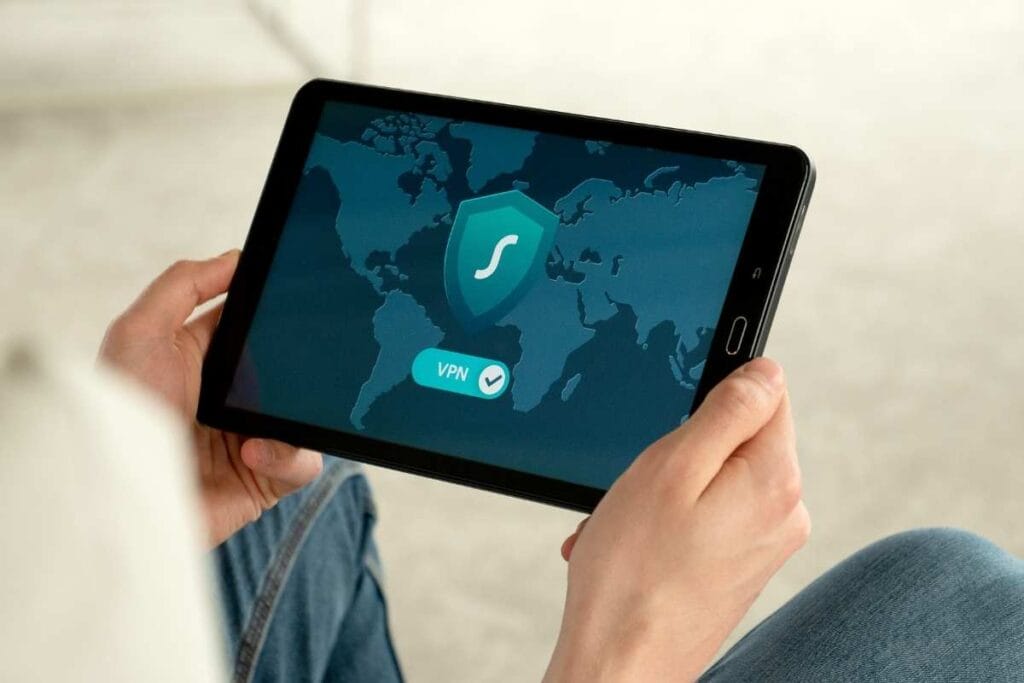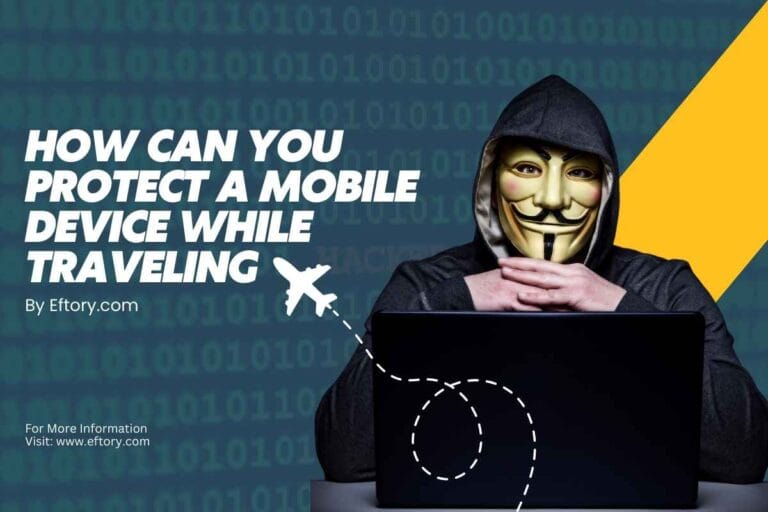When traveling, our mobile devices become an easy target for cyber threats. To keep our data and devices secure, all travelers follow these cyber awareness best practices.
How Can You Protect a Mobile Device While Traveling:
Before You Travel: Prepare Your Device
- Update Your Software and Apps:
Before you leave, make sure your device’s operating system and all apps are updated to the latest versions. Software updates often include security patches that fix vulnerabilities hackers could exploit. Set your device to update automatically if possible. - Enable Strong Passwords and Biometric Locks:
Use a strong password, PIN, or biometric authentication (like fingerprint or facial recognition) to lock your device. Avoid using simple passwords like “1234” or “password.” A strong lock ensures that even if your device is lost or stolen, your data remains inaccessible. - Install Security Software:
Install reputable antivirus and anti-malware software on your device. These tools can detect and block malicious apps, phishing attempts, and other threats. - Backup Your Data:
Backup all important data, such as photos, contacts, and documents, to a secure cloud service or an external drive. This ensures you can recover your information if your device is lost, stolen, or compromised. - Encrypt Your Device:
Enable encryption on your device to protect your data. Encryption scrambles your data which makes it unreadable to anyone who doesn’t have the decryption key. Most modern smartphones have built-in encryption features that you can enable in the settings. - Use Two-Factor Authentication (2FA): Enable two-factor authentication (2FA) for important accounts like emails, banking apps, and social media. This adds an extra layer of security by requiring a second verification step, like a text code or an authentication app. Download Google Authenticator.
- Disable Location Services When Not Needed: Turn off GPS when you don’t need it. Limit app permissions so apps can’t access your location without reason.
- Set up Remote Tracking and Wiping:
Activate features like “Find My iPhone” (iOS) or “Find My Device” (Android). These tools allow you to track your device’s location, lock it remotely, or even wipe its data if it’s lost or stolen. - Use a VPN:
A Virtual Private Network (VPN) encrypts your internet traffic that makes it difficult for hackers to intercept your data. Install a trusted VPN app on your device and use it whenever you connect to public Wi-Fi networks.
Also Read: Top 10 Travel Apps that Travelers Must Have

While Traveling: Stay Vigilant
- Avoid Public Wi-Fi Networks:
Public Wi-Fi networks, such as those in airports, hotels, and cafes, are often unsecured and can be easily exploited by hackers. If you must use public Wi-Fi, always connect through your VPN to encrypt your data. - Use Mobile Data Instead of Wi-Fi:
Whenever possible, use your mobile data instead of public Wi-Fi. Mobile data is generally more secure and less likely to be targeted by hackers. - Be Cautious with Charging Stations:
Public USB charging stations can be used for juice jacking, a technique where hackers install malware or steal data through the USB port. To avoid this, use a portable charger or a USB data blocker. - Disable Auto-Connect Features:
Turn off auto-connect for Wi-Fi and Bluetooth to prevent your device from connecting to untrusted networks or devices without your knowledge. - Be Wary of Phishing Attempts:
Cybercriminals often use phishing emails, texts, or social media messages to trick you into revealing sensitive information. Avoid clicking on suspicious links or downloading attachments from unknown sources. - Lock Your Device When Not in Use:
Set your device to auto-lock after a short period of inactivity. This ensures that even if you leave your device unattended, it remains secure. - Monitor Your Accounts:
Regularly check your bank accounts, email, and other sensitive accounts for unusual activity. Enable notifications for suspicious logins or transactions. - Avoid Oversharing on Social Media:
Refrain from posting your travel plans or location on social media. Sharing too much information can make you a target for physical theft or cyber-attacks.

Keep Your Phone Physically Secure:
- Use an anti-theft phone case with a strap.
- Keep your phone in a front pocket or a secure bag to prevent pickpocketing.
- Never leave your phone unattended at restaurants, cafes, or public places.
Why Is Mobile Device Security Important While Traveling?
When we’re on the go, our mobile devices are more vulnerable to cyber threats. Public Wi-Fi networks, crowded spaces, and unfamiliar environments create opportunities for hackers and thieves to target our devices. A compromised device can lead to identity theft, financial loss, or unauthorized access to sensitive information. By taking a few proactive measures, we can reduce these risks.
In Case of Theft or Loss:
If your device is lost or stolen, use the remote tracking feature to locate it. If you’re unable to recover the device, remotely wipe its data to prevent unauthorized access. Report the theft or loss to local authorities and your organization’s IT department (if it’s a work device). Provide them with your device’s IMEI number, which can help track it. Immediately change the passwords for any accounts accessed from the lost or stolen device. This includes email, social media, and banking accounts.
Thanks For Reading.






